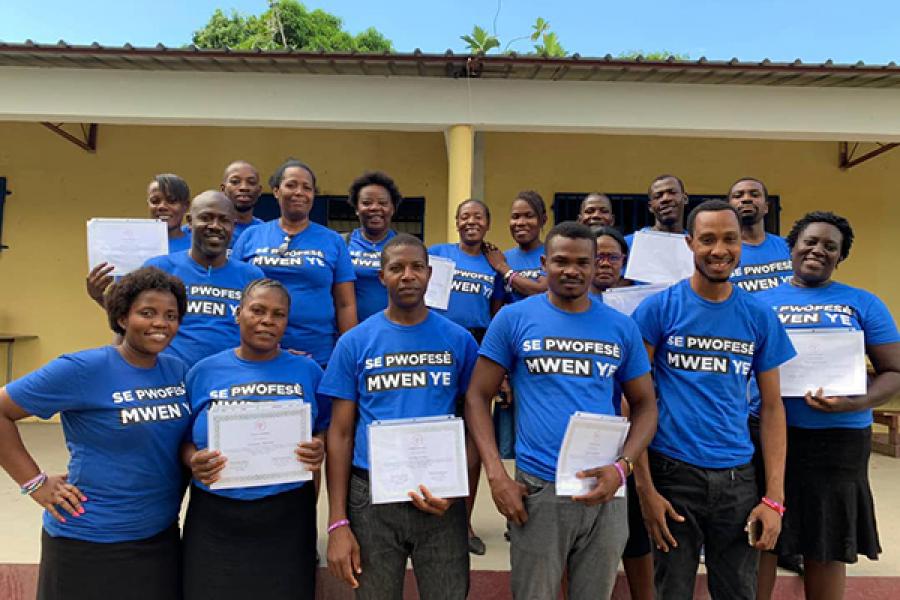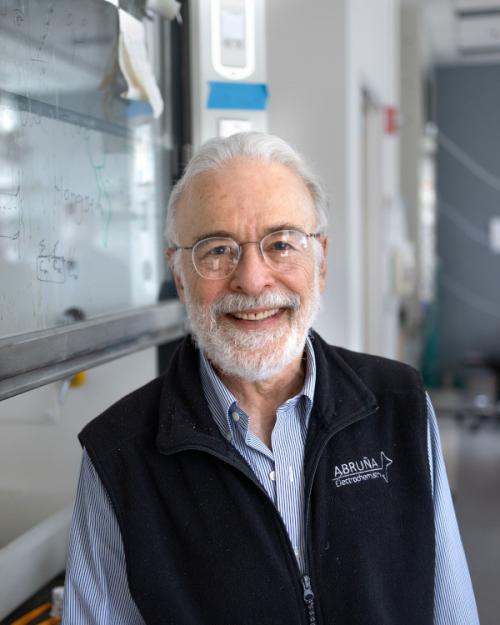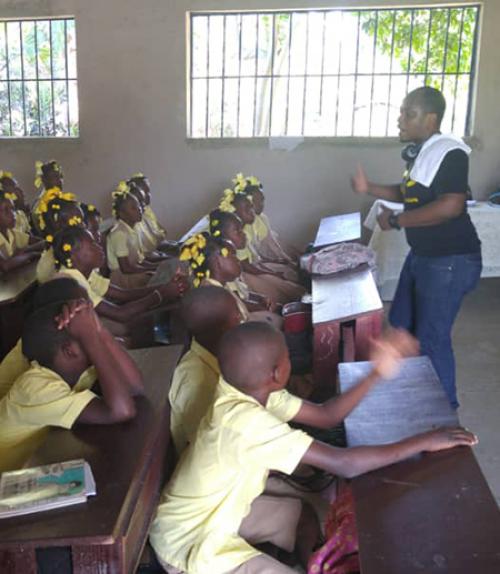Students in the Milstein Program in Technology & Humanity helped Haitian teachers improve their computer literacy this summer and an Ithaca non-profit streamline its donation process.
Catie Rencricca ’22 and Andrew Gao ’22 continued a project they started last spring with Neighbor to Neighbor (formerly Love Knows No Bounds), an Ithaca organization that helps redistribute furniture to people in need.
“We have created two database collections — one for furniture inventory and one for client data,” Rencricca said. “We are still working on fine-tuning the website design and functionality before we finally launch.”
That website, http://n2ntompkins.org, now includes a new system for volunteers to sign up and a new form people can fill out to donate furniture.
They hope to launch the new inventory system this fall and plan to streamline the system for managing and receiving information on clients in need of furniture. “Because the client data is much more sensitive, we would like to take extra steps to avoid any security vulnerabilities and will be focusing more heavily on that after we launch the inventory system for testing,” Rencricca said.
The students plan to continue working with Neighbor to Neighbor this year, she said.
The work of another Milstein team helped out a partner in Haiti, Sonje Ayiti/Remember Haiti, which works on economic development, education and health promotion programs. The students worked in the spring to develop tutorials for a curriculum to instruct teachers and students there in a variety of computer topics, including teaching the computer language of SCRATCH. They also are working to collect and refurbished computers and other tech equipment to send over.This summer, Gabrielle Aurel, executive director of Sonje Ayiti, used materials from the students during a two-week training for 20 teachers and social workers at Cima Community School of Hope in Limonade, Haiti. The school serves 254 children from preschool to eighth grade. The Milstein students sent over tablet computers loaded with a video tutorial about how to search the internet created by the Cornell student team and translated into Haitian Creole by a community partner in Haiti, Entre Les Pages. Although the tablets were stuck in customs during the training, Aurel said they will use them this fall in hands-on sessions.
“We want to expose teachers to new technologies,” Aurel said. “This is the very first time they are using a tablet, so they are excited to find online libraries and see documentaries. These are all new tools to them.”
After this introduction, teachers will be able to use the computers with their students this fall and then begin to learn and teach SCRATCH coding, as well. The hope is to form a mobile unit that can travel to other rural schools starting in the spring and share the computer and coding lessons with more children.
Along with a lack of computers, many Haitian villages face challenges with electricity and internet service, so her organization has to be creative with solar power and generator solutions.
“The will is there and we are going to make it work,” Aurel said.
The Milstein Program, in its second year, is for students who want to combine their liberal arts education with advanced study of technology. It combines the benefits of a liberal arts education in the College of Arts & Sciences with two summers spent taking courses and completing projects at Cornell Tech in New York City. The program aims to have 25 students per class with two points of entry; the first upon admission, and the second at the end of the freshman year, for a total of 100 Milstein students on campus.
The spring semester service projects are part of the Milstein “Collab” class, which all first-year students take. The Collab combines academic modules (on journalism, citizen science, data collection, privacy issues and so on) with co-curricular exploration that helps build cohesion among the participants. During the collaboration class, students take part in a variety of activities including Cornell’s Intergroup Dialogue Project, a critical reflection workshop and sessions focused on teamwork. They also choose from a number of service projects.





